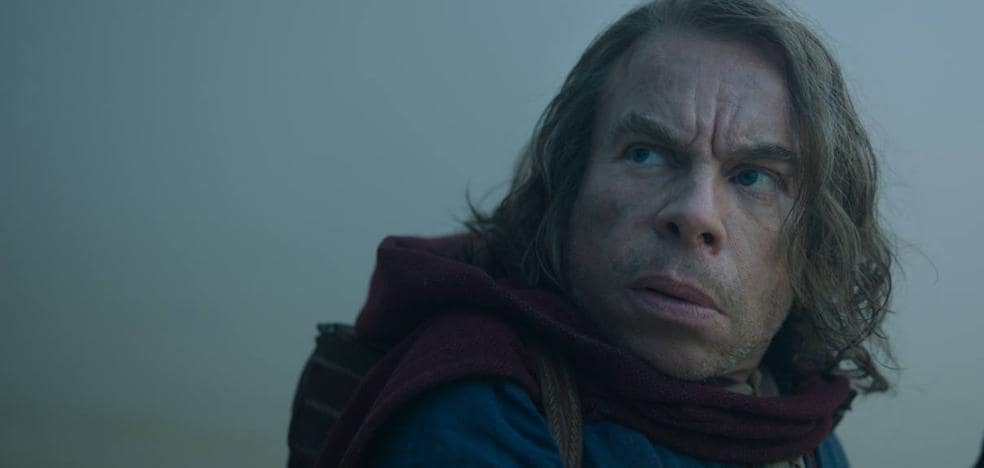A documentary revisits the career of the Spanish-Argentine group, who made the Spain of the Transition dance and eventually broke up after four albums because of egos and drugs
They lasted four albums, made a whole country dance that shook off the bullseye of Francoism, and fulfilled their dream of being like their admired Rolling Stones. ‘Tequila. Sex, drugs and rock and roll’ claims the legacy and pioneering character of a band that is part of the sentimental memory of several generations of Spaniards. As can be heard in Álvaro Longoria’s documentary presented at the San Sebastián Festival, there is not a single wedding in our country where ‘¡Salta!’ does not sound, the success they recorded when they were about to break up. They were children “too young, with too much success, too many drugs and too many women,” confirms concert promoter Gay Mercader, who accompanied them on their explosive growth to success, but eventually got tired of their egos.
‘Rock and roll in the town square’ sounds in the opening bars of the film and the film begins. Since childhood, Alejo Stivel and Ariel Rot, friends from politically important bourgeois families, arrived in Madrid, fleeing the military dictatorship in Argentina. One evening they see Julián Infante (guitar), Felipe Lipe (bass) and Manolo Iglesias (drums) and invite them to form a group that would release their first album two years later. The title, ‘Matricula de honor’, reminded us that they hadn’t set foot in a school for a long time. The “we’re going to play rock and roll in the town square,” Miguel Ríos says in the documentary, “summarized perfectly what was happening in this country.” From singing peasants to lewdly moving like Mick Jagger.
Tequila was a different group for many reasons. Made up of Spaniards and Argentinians, it broke the cliché that rock couldn’t be sung in Spanish, took the fan phenomenon to unprecedented levels and opened the door to endless formations. In the politicized years of the Transition, his only message was brutality and fun. “Rockers: If you’re not high, let it be high and roll,” Madrid Mayor Enrique Tierno Galván announced. And what if they are posted.
Without lawyers, without advisers, those children who were not yet twenty signed a leonine contract with the Zafiro firm for five albums. They unknowingly gave away 50% of the copyright. At concerts, girls threw bras at them. Those Superpop cover stars lived too fast. Manolo Iglesias died in 1994 of AIDS, the same disease that Julián Infante suffered six years later.
“People loved us very much and we sold a lot of records, we were not cursed artists who claim today,” says Alejo Stivel sitting in the hall of the María Cristina hotel in San Sebastián with Ariel Rot, his friend since she was eleven years old were old. “We weren’t exactly a ‘one hit wonder’ group either,” adds Rot. “This documentary is a sandwich with a lot of chicha in it, a lot has happened in these forty years”. In the film, which will hit theaters this fall, Felipe Lipe talks about drugs. He was the most vulgar of the group, “accompanied by one girl for lunch and another for dinner.” “We got some streaks and ended up in bed,” describes the bassist, who now lives on a pension. “Until one day Alejo came up with a piece of heroin and screwed up our lives because we all got addicted.”
“Drugs played an important role. We were very happy smoking our joints, there was a point of innocence. But then heroin came in, not only in Tequila, but also in society. Fame and money helped. And it contributed to the personal decline of each of the members of the group,” recalls Ariel Rot. “We looked at ourselves musically in some of the idols who had these practices: the Stones, John Lennon, Iggy Pop, Bowie… We thought that if they did it and were world stars, it wouldn’t be so bad,” Stivel says.
The actress Cecilia Roth, Ariel’s sister and witness to parties and nightlife, remembers the arrival of the “dealer” as one of the worst moments of those unrepeatable years. The shenanigans of the music industry that Tequila suffered, in which José Luis Uribarri and Los 40 Principales didn’t come through very well, would make a new documentary. “Cheating a musician is very easy. I don’t torture myself, but I keep paying for them, because those contracts last forever,” confesses ArielRot, who later founded Los Rodríguez. Alejo Stivel, a highly respected music producer, for his part, doesn’t torment himself about it: “You already knew that the distribution was not fair, but luckily we accepted it, otherwise we would not have been able to achieve what we have achieved».
‘Tequila. Sex, drugs and rock and roll’ alternates archive footage with testimonials from the likes of Miguel Ríos, Ramoncín, Benjamín Prado, Jesús Ordovás, Cecilia Roth, Miguel Ángel Arenas ‘Capi’ and Gay Mercader. He restores appearances in the mythical ‘Aplauso’ and the 2018 concert at the Wizink Center, which foretold his farewell three years later after his reunification and in which they played with Fito, M-Clan and Dani Martín, among others.
They were jealous of Tequila because they played better than the Movida groups, as can be seen in the documentary. “The film tells how success is forged and what consequences it has,” notes director Álvaro Longoria. “The fans pass, the songs remain,” Ariel Rot concludes for Alejo Stivel’s laugh. They swear they are still friends. “We do the paripé to promote the film,” they smile.
Source: La Verdad
I’m Wayne Wickman, a professional journalist and author for Today Times Live. My specialty is covering global news and current events, offering readers a unique perspective on the world’s most pressing issues. I’m passionate about storytelling and helping people stay informed on the goings-on of our planet.



